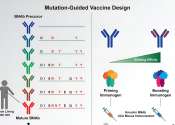Body-wide molecular map explains why exercise is so good for you
Exercise—it's associated with increased muscle strength, improved heart health, lower blood sugar and just about every other physical improvement you can name. But how does regularly puffing away on a treadmill, biking ...
May 14, 2024
0
28









